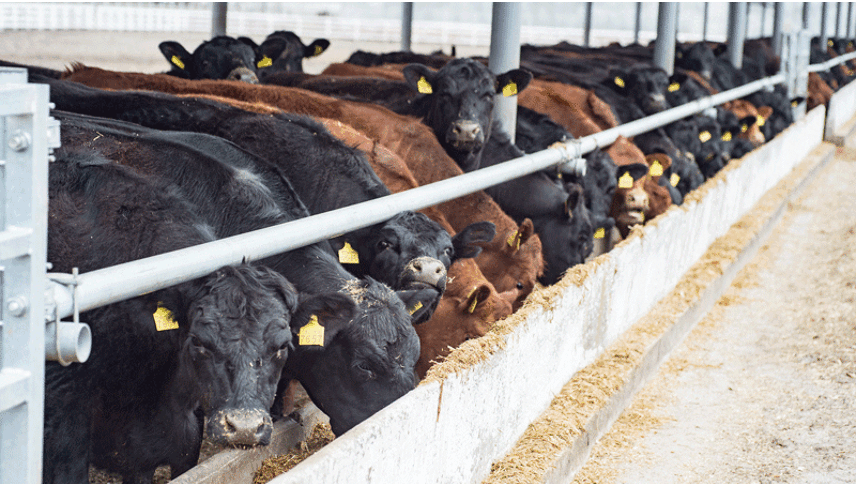Register for free and continue reading
Join our growing army of changemakers and get unlimited access to our premium content

Spencer, at the National Farmers’ Union (NFU) conference earlier this week, confirmed that a trade deal being developed with Mexico may cover beef and other meat. It will already cover some types of dairy, primarily sent from the UK to Mexico. Spencer touted the import of Mexican beef to the UK.
“We have to be fair to everyone; we can’t say we will sell milk to you but we won’t buy your beef,” Spencer said.
NFU president Minette Batters said that farmers “don’t want to see further imports of beef” and noted that beef produced in Mexico was likely to be higher in carbon intensity and greater in terms of potential deforestation risk.
CCC chairman Lord Deben has today (22 February) expressed these same concerns in a letter sent to Spencer. Deben said that the Committee has “made it quite clear that we cannot ask UK farmers to meet the high standards our carbon budgets require while importing food from nations that produce meat with higher emissions”.
Deben said that this situation would be the opposite of a just transition for farmers in the UK, who are currently being asked to apply for new post-Brexit payment and subsidy schemes designed to increase biodiversity and cut emissions, among other environmental improvements. Farmers are also facing challenges such as skyrocketing energy and fertiliser prices, chiefly attributable to Russia’s war in Ukraine. This all means their costs may be higher than those overseas.
Deben also noted his Committee’s previous advice on reducing red meat consumption in the UK in the first instance, which would limit the market for imports. Early 2020 saw the Committee recommending a 20% per-capita reduction in red meat consumption by 2030. Henry Dimbleby’s review recommended a steeper 30% reduction. As of yet, the Government has not set a reduction target, with consecutive Prime Ministers stating that the Conservative Party is not keen to intervene in the daily food habits of the general public.
A Government spokesperson said: “The UK is a global leader in environmental protection and animal welfare and we will never sign a trade deal that compromises on these standards.
“Our approach to trade is clear. We are committed to realising the benefits of greater trade, opening up new markets for our world-class British produce, and ensuring that our approach works for farmers, consumers and businesses.”
CBAM
Concern that British businesses may be undercut on price by high-carbon imports without stricter trade limits has not been limited to food in recent times. The Aldersgate Group issued a call in December 2022 for a carbon border tax on imports of industrial materials and products, such as steel, concrete and glass. It also recommends such a tax on imported vehicles.
The EU last year set out plans for the world’s first carbon border tax on imports. The so-called carbon border adjustment mechanism (CBAM) will mirror the EU’s own domestic carbon price and will initially apply to imports including iron and steel, cement, aluminium, fertilisers, hydrogen and electricity. The UK had been consulting on its own CBAM in the summer of 2022 but this work has been paused.
Responsibility for work to develop the UK’s CBAM – and to look at strengthening key environmental standards for future trade deals – will now sit slightly differently than it would have last year. Prime Minister Rishi Sunak disbanded the Department for Business, Energy and Industrial Strategy (BEIS) earlier this month and created a new Department for Energy Security and Net-Zero. The ‘Business’ part of BEIS, meanwhile, was merged with the Department of International Trade, creating a new Department for Business and Trade.
Join the green policy debate at edie 23
Taking place in London on 1-2 March 2023, edie’s biggest annual event has undergone a major revamp to become edie 23, with a new name, new venue, multiple new content streams and myriad innovative event features and networking opportunities.
edie 23 will take place at the state-of-the-art 133 Houndsditch conference venue in central London. Held over two floors, the event will offer up two full days of keynotes, panels, best-practice case studies and audience-led discussions across three themed stages – Strategy, Net-Zero and Action.
Click here for full information and to book your ticket.
Those interested in policymaking for the UK’s net-zero transition won’t want to miss our keynote speech from Climate Change Committee Chairman Lord Deben, nor our debate featuring MP Chris Skidmore and the Department for Business, Energy and Industrial Strategy’s head of net-zero business engagement Catherine Westoby.


Please login or Register to leave a comment.